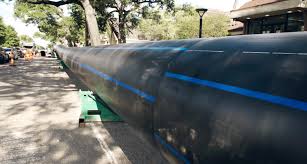Nov . 28, 2024 16:02 Back to list
China's PPR Pipe Solutions for Efficient Hot Water Systems and Applications
The Role of PPR Pipes in China's Hot Water Systems
In recent years, the demand for efficient and reliable hot water systems has surged in China, driven by rapid urbanization and improvements in living standards. One of the most significant materials that have emerged in this context is Polypropylene Random Copolymer (PPR) pipes. Known for their durability and resistance to heat, PPR pipes have become a popular choice for hot water distribution systems across the country.
Characteristics of PPR Pipes
PPR pipes are made from a thermoplastic material that exhibits remarkable properties, making them ideal for hot water applications. One of the key features of PPR is its ability to withstand high temperatures, which typically reach up to 95°C (203°F). This makes them suitable for hot water supply in residential, commercial, and industrial settings. Furthermore, PPR pipes are resistant to corrosion, which is a common issue with traditional metal pipes. This resistance enhances the longevity of the plumbing system, reducing maintenance costs over time.
The lightweight nature of PPR pipes simplifies transportation and installation. Their flexibility allows for easy routing in various configurations, which is especially beneficial in complex installations. Moreover, jointing methods such as heat fusion provide a seamless connection between pipes, minimizing the risk of leaks and ensuring a tight seal.
Environmental Considerations
As China continues to focus on sustainable development, PPR pipes align well with environmental goals. They are recyclable, reducing the overall environmental footprint compared to other materials like PVC or metal. Additionally, PPR pipes are free from harmful substances such as lead and heavy metals, contributing to a safe and healthy water supply.
Applications in Hot Water Systems
china ppr for hot water

In the context of hot water systems, PPR pipes are utilized in various applications, ranging from residential buildings to industrial heat transfer systems. In homes, they are commonly used for domestic hot water supply, ensuring that households have access to hot water for bathing, cooking, and cleaning. In commercial buildings, PPR piping systems are essential for providing hot water to kitchens, restrooms, and heating systems.
PPR pipes are also making their way into district heating systems, where hot water is generated in a central location and distributed to multiple buildings. These systems can be highly efficient, reducing energy consumption and costs. With the growing emphasis on energy efficiency in China, the adoption of PPR pipes in these applications is expected to increase.
Challenges and Innovations
Despite their advantages, the use of PPR pipes in China's hot water systems is not without challenges. One issue is the thermal expansion of PPR pipes, which can lead to joint stress if not properly accounted for in the design phase. Engineers must ensure that there is enough allowance for movement during the installation process to mitigate this risk.
Innovation is key to overcoming such challenges. Manufacturers are continuously developing enhanced PPR formulations and connection techniques to improve performance and durability. Advances in technology have also led to better insulation materials, which help maintain the temperature of hot water in the pipes, reducing energy loss during distribution.
Conclusion
As China strives to modernize its infrastructure and improve the quality of life for its citizens, PPR pipes stand out as a reliable solution for hot water systems. Their combination of high temperature resistance, corrosion resistance, and lower environmental impact makes them an increasingly popular choice over traditional materials. With ongoing innovations and a commitment to sustainability, the future of PPR pipes in China’s hot water applications looks promising. Embracing such technologies not only enhances the efficiency of water systems but also aligns with broader goals of resource conservation and environmental protection.
-
High-Quality PVC Borehole Pipes Durable & Versatile Pipe Solutions
NewsJul.08,2025
-
High-Quality PVC Perforated Pipes for Efficient Drainage Leading Manufacturers & Factories
NewsJul.08,2025
-
High-Quality PVC Borehole Pipes Durable Pipe Solutions by Leading Manufacturer
NewsJul.08,2025
-
High-Quality PVC Borehole Pipes Reliable PVC Pipe Manufacturer Solutions
NewsJul.07,2025
-
High-Quality UPVC Drain Pipes Durable HDPE & Drain Pipe Solutions
NewsJul.07,2025
-
High-Quality Conduit Pipes & HDPE Conduit Fittings Manufacturer Reliable Factory Supply
NewsJul.06,2025

